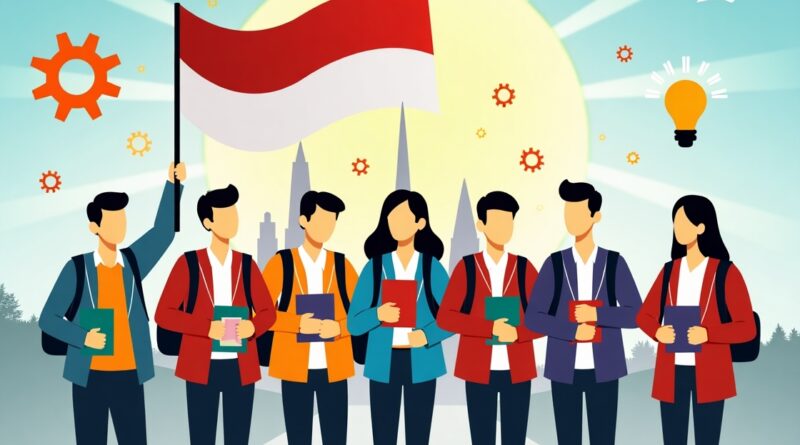The Strategic Role of University Students in Upholding Indonesia’s Independence
By Dr. Abdul Wadud Nafis, LC., MEI
The independence achieved on August 17, 1945 was not the end of the struggle, but rather the beginning of Indonesia’s long journey to realize the noble ideals stated in the Preamble of the 1945 Constitution: to protect the entire Indonesian nation, to educate the nation’s life, and to promote general welfare. In this process, university students hold a strategic position as they are an educated generation with critical thinking skills, idealism, and innovative abilities.
1. Becoming Guardians of the Values of the Struggle
Students must understand that independence was achieved through the great sacrifices of the heroes. By studying history and the values of the struggle, they can preserve the spirit of nationalism so it will not fade in the tide of globalization.
2. Sharpening Competence and Professionalism
The freedom to learn in this era of independence is a valuable asset. Students must take advantage of it to master science, technology, and practical skills to be ready to compete globally while contributing to the nation’s progress.
3. Becoming Agents of Change
History records the role of students in socio-political changes, such as in the events of 1966, 1998, and various other moral movements. Students bear the responsibility to safeguard public policy, fight for justice, and drive reforms that side with the people.
4. Guarding Democracy and the Rule of Law
In filling the meaning of independence, students must go beyond learning in the classroom. They must also actively participate in safeguarding democracy, upholding the rule of law, and critiquing policies that conflict with the people’s interests.
5. Preserving Unity in Diversity
The campus is a miniature of Indonesia, where students from various ethnicities, religions, and cultures meet. Students can set an example in respecting differences, strengthening tolerance, and preventing division.
6. Applying Knowledge for Community Service
Through activities such as Community Service Programs (KKN), research, and village empowerment projects, students can help improve the quality of life for communities, especially in remote areas.
7. Contributing to Innovation and Entrepreneurship
Today’s students can uphold independence by creating products, technologies, or services that help address national issues such as unemployment, poverty, and development inequality.
Conclusion:
Independence is not merely freedom from physical colonization, but also from ignorance, poverty, and injustice. Students have a moral responsibility to keep learning, creating, and serving, so that the independence fought for by the heroes truly benefits all Indonesian people.
References
1. Alfian. (1993). Pemikiran dan Perubahan Politik Indonesia. Jakarta: PT Gramedia Pustaka Utama.
2. Djojonegoro, W. (2003). Pendidikan dan Pembangunan Bangsa. Jakarta: Balai Pustaka.
3. Hatta, M. (2014). Demokrasi Kita. Jakarta: Kompas.
4. Latif, Y. (2018). Negara Paripurna: Historisitas, Rasionalitas, dan Aktualitas Pancasila. Jakarta: Gramedia Pustaka Utama.
5. Moedjanto, G. (1993). Indonesia Abad ke-20. Yogyakarta: Kanisius.
6. Soekarno. (1965). Di Bawah Bendera Revolusi. Jakarta: Panitia Penerbit.
7. Susanto, E. (2019). The Role of Students as Agents of Social Change in the Digital Era. Jurnal Ilmu Sosial, 12(1), 45–57.
8. The 1945 Constitution of the Republic of Indonesia.
9. Law Number 12 of 2012 on Higher Education.
10. Ministry of Education, Culture, Research, and Technology. (2023). Guidelines for Merdeka Belajar – Kampus Merdeka. Retrieved from https://www.kemdikbud.go.id
11. Republic of Indonesia. (2020). Indonesia Emas 2045 Vision. Retrieved from https://www.bappenas.go.id



